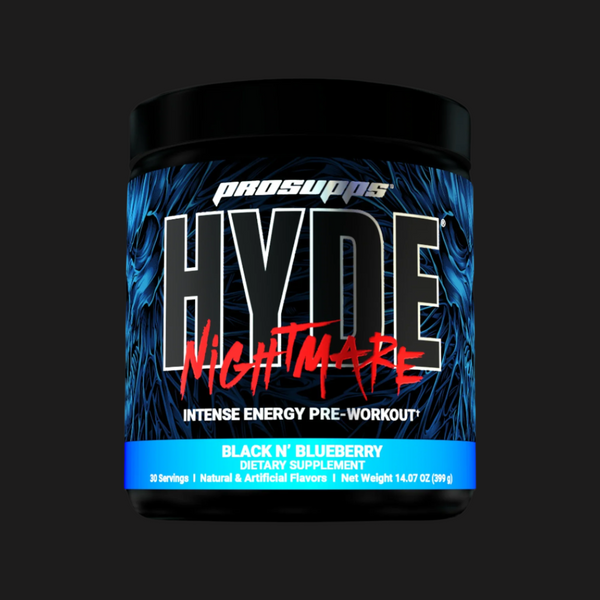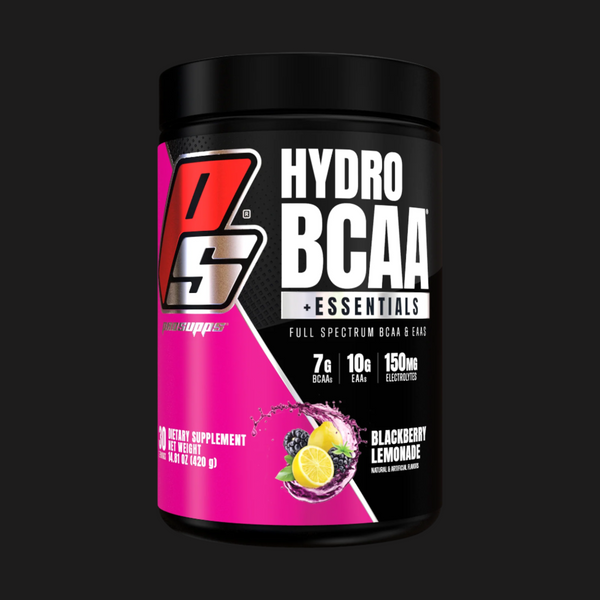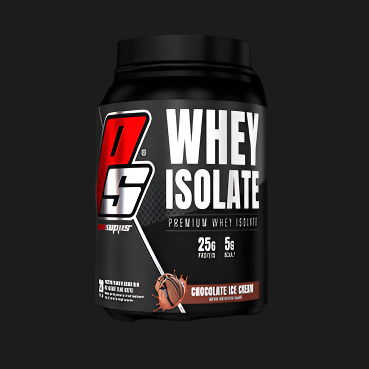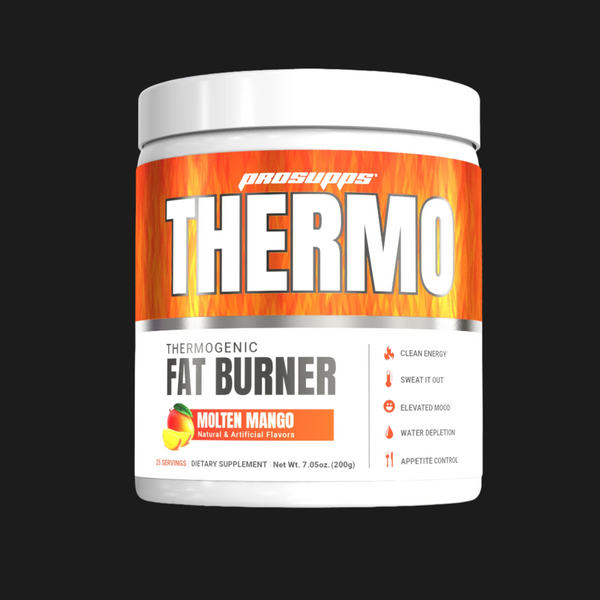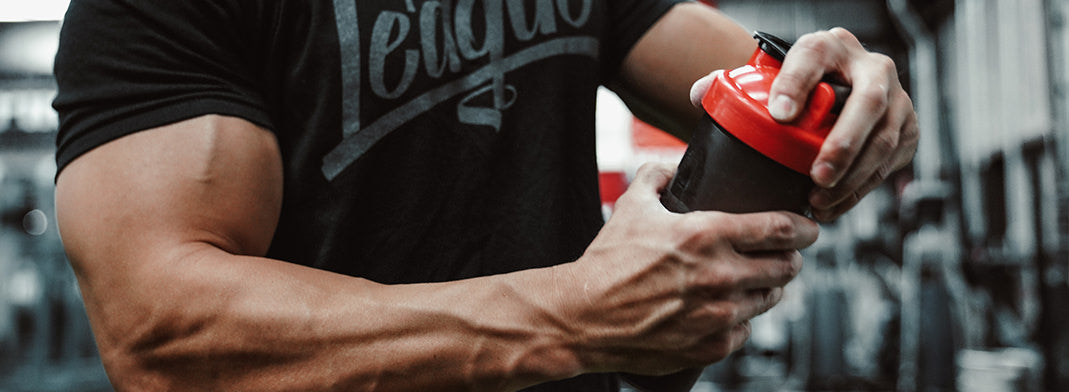
A Crash Course Into The World Of Pre-Workout Supplements
 Written by Guy Gustafson
Written by Guy Gustafson June 21, 2021
From weights and workout equipment to post-workout care and sportswear, there are countless products available in the world of sports and athleticism. One type of product that gets more publicity than most is supplements.
Unlike workout gear or equipment, supplements aren’t considered workout necessities. In fact, supplements are usually only taken by those who have a heightened interest or career in fitness, health, or exercise.
When blended correctly, workout supplements offer an array of health and performance boosts beneficial for exercise. Particularly, pre-workout supplements can amplify your fitness regime by enhancing your strength, energy, endurance, power, mental acuity and cardiovascular flow.
Because there are a plethora of pre-workout products on the market today, it can be difficult for someone just starting out to know what types of ingredients will make pre-workouts work for them.
At ProSupps we have an extensive range of pre-workout supplements that cover the needs of everyone, from the casual gym-goer to the professional athlete.
Below, we’ve compiled five laboratory-tested and certified ingredients commonly found in pre-workout supplements. With this list, you’ll gain insight into which ingredient would best cater to your fitness needs and goals.
Citrulline Malate
First on our list of pre-workout ingredients is the amino acid compound, citrulline malate. This compound is composed of the amino acid citrulline and the organic salt malate. It is known to improve muscle recovery and stamina, and boost energy levels.
Citrulline malate triggers an increase in nitric oxide concentration within the bloodstream. Nitric oxides are useful in exceeding the limitations of one’s physical strength. They strengthen the blood flow to muscles which directly leads to better pumps.
In addition, citrulline malate also improves blood circulation by facilitating a greater flow of oxygenated blood to the muscles. This replenishes phospho-creatine (PCr) which triggers the regeneration of adenosine triphosphate (ATP), the main molecule in charge of transporting energy.
Faster diffusion of ATP molecules means that each muscle cell gains more energy, giving you the stamina needed for contractions and relaxations during exercise.
Citrulline malate also reduces the accumulation of lactic acid and ammonia within the muscles during anaerobic respiration. This delays muscle fatigue, allowing your muscles to work harder and perform for a longer period of time.
Thus, it comes as no surprise that citrulline malate is a favorite amongst many athletes, professional and casual alike. This amino acid compound greatly improves the overall efficiency of the body’s cardiovascular system, elevating athletic performance like no other. Due to its effectiveness, its potency is felt in as little as as 6 gs.
NAC
N-Acetyl Cysteine (NAC) is a compound derived from the amino acid L-cysteine. Found in abundance throughout the body, NAC is an excellent nutritional supplement with multiple health and fitness benefits.
One of NAC's claims to fame is its ability to weaken oxidative stress through its direct conversion to the antioxidant glutathione. In conjunction with that, it also consequently boost the concentration of glutathione-producing enzymes within our system.
The reason why this increased production of glutathione-producing enzymes and glutathione itself is beneficial since extensive research has shown that engaging in physically strenuous activity like exercise naturally increases the expression of classical antioxidant enzymes like glutathione peroxidase. In essence, the more exercise is done, the more antioxidant enzymes are produced — and this is good. Antioxidants are helpful molecules in alleviating muscle soreness after physical exertion.
Moreover, the boosted concentration of antioxidants also assists in scavenging for damaging free radicals circulating within the body. By locating the radicals, the antioxidants are then able to prevent further radical formation and in fact, decompose them entirely. Therefore, this inhibits the occurrence of free radical-induced tissue damage.
Additionally, NAC is also a huge proponent for maintaining liver health and promoting better management of blood glucose levels.
Thus, after reading all these health benefits afforded by NAC, it doesn’t take a genius to put two and two together to deduce why NAC is such a popular pre-workout supplement. Out of the aforementioned health benefits, NAC’s relevance as a pre-workout supplement mainly lies in its promotion of powerful antioxidants.
Acting as a complement to the body’s natural antioxidant concentration, NAC helps to boost protection against oxidative stress while working out. As a result, the body will be able to reap higher gains and reduce muscle tension after every workout session.
If you’re interested in trying out NAC as a supplement, the recommended dosage is 500mg.
Beta-Alanine
Another naturally occurring (endogenic) amino acid within the body, beta-alanine is a powerful compound playing a critical role in high-intensity workouts. It’s been scientifically proven to improve strength, power, promote muscular mass, muscular endurance, and delay fatigue. Overall, all these combined effects result in greater performance output.
Hence, beta-alanine is another fan favorite amongst bodybuilders looking to grow in muscle mass and size. But how exactly does beta-alanine achieve all these seemingly miraculous results?
Essentially, beta-alanine helps to increase one’s muscular levels of carnosine, acting as a precursor for nitric oxide production. Recall: nitric oxides are crucial in improving blood circulation and therefore, promoting faster circulation of oxygenated blood within your body to facilitate aerobic respiration.
Furthermore, its ability to slow down the buildup of lactic acid within muscles (similarly to citrulline malate) increases endurance and performance by delaying the onset of muscular fatigue.
As a result, beta-alanine also works as a great ingredient in pre-workout supplements targeted towards athletes engaging in spurts of high-intensity activity such as sprinters. Overall, beta-alanine is a wonderful amino acid compound to promote muscle growth and improve stamina.
So whether you’re a bodybuilder striving to increase your number of reps in a set or a sprinter trying to break your personal best timing, you really can’t go wrong with purchasing pre-workout supplements containing beta-alanine.
The recommended dosage for beta-alanine is about 3.2 grams.
Taurine
Next up on our list, taurine is another useful amino acid compound involved in improving fitness performance and lean mass accumulation. Collected in intracellular abundance within the white blood cells, skeletal muscles, and central nervous system, the boosted effects of taurine should not be underestimated.
It invokes a similar effect as creatine (another amino acid compound) where it pulls water into muscle cells. This process of cell volumization makes the impacted cells appear fuller or larger as well as creating an anabolic environment for the occurrence of hypertrophy.
Now all this jargon might sound confusing at first but don’t be alarmed. Anabolic simply refers to “building up” and hypertrophy refers to an increase and growth of muscle cells. Thus, in a nutshell, taurine creates an ideal intracellular environment for the growth of muscle mass.
Following the same concept of “drawing water into cells” and according to research, taurine naturally also assists in regulating water and electrolyte content within our cells and bloodstream. Maintaining a steady supply of water to these components ensures that our muscles don’t cramp up from all the strenuous force exerted on them during exercise.
And finally, to reiterate the significance of nitric oxides and exercise for the last time: taurine contributes to higher release rates of these vasodilators within the bloodstream. Oxygenated blood then flows to all the relevant muscle groups in action, thereby improving a muscle’s ability to exert greater force through contractions during each rep.
The recommended dosage for Taurine is one gram.
Glycerol
As seen from the benefits of water regulation from Taurine, glycerol is also another pivotal contributor to this area. Naturally produced and comprising cell membranes, glycerol has a hyper hydrating effect. But how does this contribute to improving fitness performance?
Well, according to studies, increased production of glycerol works in improving the body’s heat tolerance as well as mitigating or impeding the effects of dehydration.
In the long run, this builds up endurance and stamina because the muscular cells are constantly well-hydrated and energized for energy output. This leads to a perceived lower amount of exertion needed by the muscular cells to achieve the same level of performance.
The recommended dosage for glycerol is one to 1.2 grams per kilogram of bodyweight.
Conclusion
Although this list is by no means exhaustive, it’s undeniable that the nutritional ingredients mentioned here are beneficial to boosting overall fitness prowess.
From amino acid compounds to nitric oxides, there are a lot of mechanisms involved operating at a cellular level that contributes to the functionality of your body.
Check out our range of pre-workouts to choose one that aligns with your fitness goals.
GET LEAN
 Why You're Struggling
Can't Lean Out? Here's Why You're Struggling
Why You're Struggling
Can't Lean Out? Here's Why You're Struggling
We all know the feeling. You’ve been working hard in the gym, sticking to your diet and getting in your...
 Weight Loss
Choosing the Best Protein Powder for Weight Loss
Weight Loss
Choosing the Best Protein Powder for Weight Loss
Struggling to shed body fat and lean out? You might need to focus more on your nutrition, specifically your protein...
 Weight Loss
9 Ways to Speed Up Your Weight Loss and Burn More Fat
Weight Loss
9 Ways to Speed Up Your Weight Loss and Burn More Fat
Weight loss is a major goal for more than 40 percent of Americans. Is it something you’re working toward, too?
 Workout Routine
10 Tips for Building a Sustainable Workout Routine
Workout Routine
10 Tips for Building a Sustainable Workout Routine
Starting a fitness journey is an exciting time, but maintaining a sustainable workout routine can be challenging. From setting realistic...





